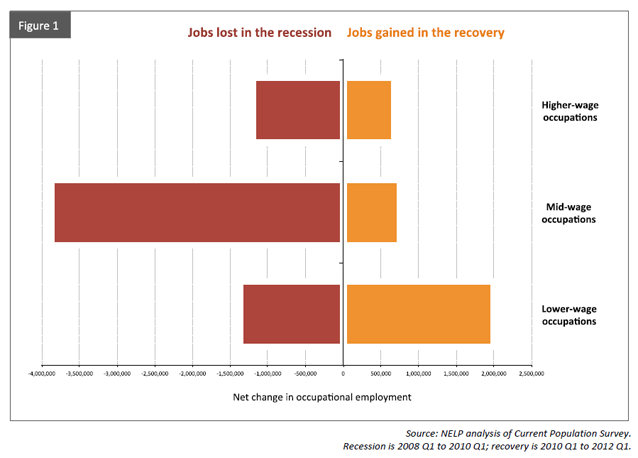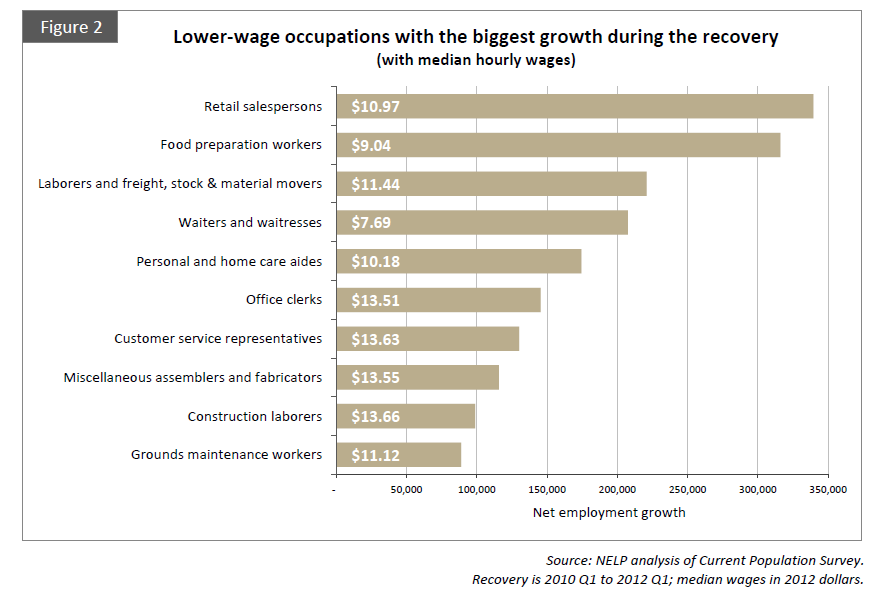By Michael Wasser

As we stand with Walmart associates, restaurant staff and home care workers in their efforts for better job standards, we occasionally receive this dismissive response: “No one is forcing them to stay at their job. They should just quit and find another one!”
But can these workers actually just quit and get a new job? Looking at the facts, it doesn’t appear so. And it certainly isn’t as easy as the rhetorical statement implies.
Looking first at the overall economy, employers aren’t doing much hiring and certainly haven’t returned to pre-recession hiring levels.
Graph via Steven Perlberg, Business Insider
Well, what about the hiring that is happening? Our friends at NELP have found that, post-recovery, much of hiring is for lower-wage jobs.
NELP’s analysis went a step further and looked at job growth within the lower wage occupations category. As you can see below, the biggest job growth recently within the lower wage occupations is for these exact jobs: retail salespersons, food preparation workers and personal and home care aides.

Simply put, it’s just not feasible for people employed in low-wage industries to quit their jobs in large numbers at the moment and reasonably expect to immediately find better employment opportunities. That doesn’t mean these lower wage jobs have to remain bad jobs. In bravely speaking up for a better workplace, Walmart associates, fast food workers, restaurant wait staff and home care aides are helping to reshape job standards for entire industries.
And if you’re going to tell millions of workers to quit and find another job, you should also provide specific, realistic employment alternatives. Otherwise, they’re left with this:
Source: Why Can’t Workers in Low-Wage Jobs Just Quit?



You must log in to post a comment.